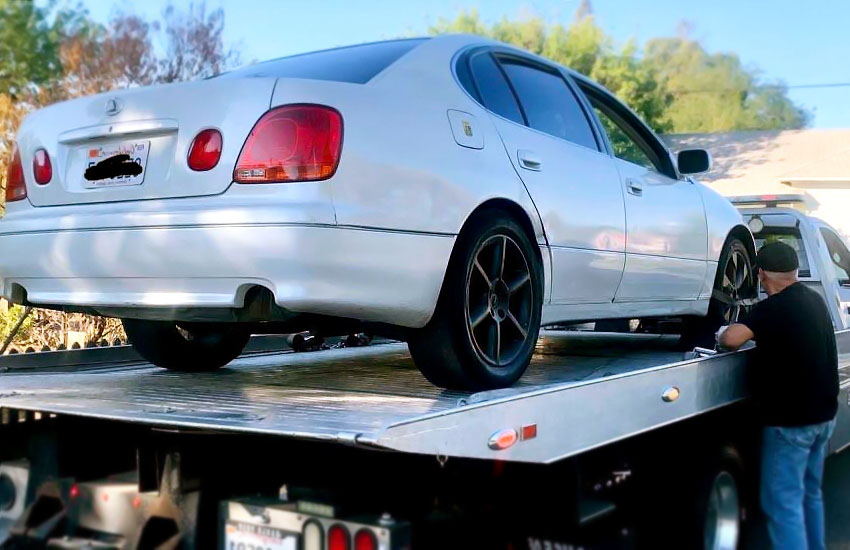You’re probably stressed out if your car’s been impounded and you’re dealing with those pesky fees. It’s a tough spot to be in, but don’t worry—there are ways to handle it.
First things first, understanding why your car was impounded is key. It could be due to unpaid tickets, expired registration, or even parking violations. Knowing the reason can help you figure out your next steps.
In this article, we’ll break down what you can do about those car impound fees. You’ll find out how to appeal the fees, what steps to take to get your car back, and tips to avoid these issues in the future. By the end, you’ll have a clearer idea of how to handle impound fees and get your car back on the road. Let’s dive in and sort this out!
Understand Why Your Car Was Impounded
When your car gets towed and impounded, the first thing you need to do is find out exactly why it happened. This can help you figure out what to do next and how to handle the fees. The reason for impoundment is usually related to some sort of rule or law that was not followed. Common reasons include having unpaid parking tickets, expired registration, or parking in a spot where you shouldn’t have.
To get started, you should contact the impound lot where your car is being kept. They can give you detailed information about why your vehicle was taken. When you call or visit them, make sure you have important details like your car’s license plate number or VIN (Vehicle Identification Number) ready. This will help them find your car quickly and give you the information you need.
It’s also a good idea to ask for any written notice or report about the impoundment. This document should explain why your car was taken and what steps you need to take to get it back. Sometimes, this notice might be sent to you in the mail or it could be handed to you by the authorities at the time of impoundment.
Every city or town has its own rules about car impoundments, so it’s important to know the local regulations. These rules can include how long the impound lot will keep your car before charging you more fees, or what kind of fines you might need to pay. By understanding these rules, you can better prepare yourself for the costs and actions required to get your car back.
If you’re not sure where to find this information, you can check the website of your local city or municipal government. Many of them have sections about parking violations and impoundment procedures. You can also call your local police department or city hall to ask for more details.

Determine the Total Cost of Fees
Once you know why your car was impounded, the next step is to figure out how much it will cost to get it back. There are a few different fees that you might need to pay, and knowing them all helps you plan and prepare your budget.
Start by asking the impound lot for a breakdown of all the fees. This usually includes the daily storage fees, which are the charges for keeping your car in the impound lot. These fees can add up quickly, so it’s important to get this information as soon as possible. The longer your car stays in the lot, the more you will owe.
In addition to storage fees, you will likely have to pay towing charges. These are the costs for moving your car from where it was parked to the impound lot. Towing fees are usually separate from storage fees and can also vary depending on how far your car was towed and the company that did the towing.
There might also be additional costs involved. For example, there could be administrative fees for processing your vehicle’s paperwork or fines related to any traffic violations that led to the impoundment. Make sure to ask for a complete list of all possible charges so you can be fully prepared.
If you’re having trouble understanding the fee structure or if it seems like there are too many charges, don’t hesitate to ask for clarification from the impound lot staff. They should be able to provide a detailed explanation of each fee and how it was calculated.
Contact the Impound Lot
After you’ve figured out the total cost, your next step is to get in touch with the impound lot. This is where you will handle all the arrangements to get your car back.
When you contact the impound lot, it’s helpful to have all the necessary information about your vehicle with you. This includes your car’s license plate number, VIN, and any paperwork you have related to the impoundment. Providing this information up front will help the staff locate your vehicle quickly and make the process smoother.
One important thing to discuss is the payment options. Ask the impound lot what forms of payment they accept. Common payment methods include cash, credit or debit cards, and sometimes even checks. Make sure you know which methods are accepted so you can bring the right form of payment when you go to retrieve your car.
If you can’t afford to pay the full amount right away, ask about the possibility of setting up a payment plan. Some impound lots may allow you to pay the fees in installments instead of all at once. This can make it easier to manage your finances and get your car back even if you don’t have all the money immediately.
It’s also a good idea to ask about the process for getting your car released. Find out if you need to complete any forms or provide additional documentation. Knowing these details in advance can help you avoid any delays when you go to pick up your vehicle.
Resolve Any Outstanding Tickets or Fines
If your car was impounded due to unpaid tickets or fines, you’ll need to address these before you can get your vehicle back.
Start by checking if you have any outstanding parking tickets or other fines that led to the impoundment. You can usually find this information through your city’s parking enforcement office or their online payment system. Once you have a list of any unpaid tickets, make arrangements to pay them as soon as possible.
When you make payments, be sure to get proof of payment. This could be a receipt or a confirmation number. You might need to show this proof to the impound lot to prove that you’ve resolved the issues that caused the impoundment.
After paying your fines, make sure to address any other issues related to your car’s impoundment. For example, if your vehicle was impounded due to expired registration, you’ll need to renew it before you can get your car back.
Check with the impound lot to confirm that all issues have been resolved and that you’re clear to retrieve your vehicle. This will help you avoid any further complications and ensure that you can get your car back as quickly as possible.
Retrieve Your Vehicle
Now that you’ve handled all the necessary paperwork and payments, it’s time to go pick up your car.
Start by visiting the impound lot with all required documentation. This usually includes proof of payment for any fines and fees, along with any identification documents you might need. Make sure to bring everything with you to avoid any delays.
At the impound lot, you’ll likely need to complete some forms to officially retrieve your vehicle. These forms might ask for your personal information and details about your car. Fill out these forms carefully and make sure all information is accurate.
Before you leave with your vehicle, take a moment to inspect it for any damage. Check both the interior and exterior of the car. If you notice any issues, report them to the impound lot staff immediately. It’s important to document any damage to ensure you’re not held responsible for it later.
Prevent Future Impoundments
To avoid having your car impounded again, there are a few steps you can take to stay on top of things.
First, make sure your vehicle registration is always current. Check the expiration date regularly and renew it before it expires. This will help prevent your car from being impounded for having an expired registration.
Second, pay any parking tickets or fines promptly. Don’t let them accumulate, as unpaid tickets can lead to impoundment. Keeping track of any tickets you receive and addressing them quickly can save you from future trouble.
Finally, get familiar with local parking regulations and laws. Knowing where you can and cannot park can help you avoid getting your car towed. Pay attention to signs and rules in the areas where you park regularly.
Seek Legal Advice if Necessary
If you believe that your car was impounded unfairly or if you’re having significant issues with the fees, it might be time to seek legal advice.
Consider consulting with an attorney who specializes in traffic laws or vehicle impoundments. They can help you understand your rights and provide guidance on how to resolve any disputes you might have.
If you’re unable to afford an attorney, look for legal aid services in your area. Many organizations offer free or low-cost legal assistance for people who need help but don’t have the financial means to pay for it.
By following these steps, you can effectively manage and resolve issues related to car impound fees. Understanding the process, handling payments, and addressing any outstanding tickets will help you get your vehicle back and avoid future problems.
Are these Questions in Your Mind?
Is it possible to get my impounded car back if I lost the impound notice?
Yes, it is still possible to retrieve your impounded car even if you lost the impound notice. You can contact the impound lot directly and provide them with your vehicle’s license plate number or VIN (Vehicle Identification Number). They can use this information to locate your car and provide you with the necessary details to retrieve it.
Can I get a refund on impound fees if my car was impounded by mistake?
It’s unlikely that you will receive a refund on impound fees if your car was impounded by mistake. However, you should contact the impound lot or the local authorities to explain your situation. If you have evidence that the impoundment was an error, they may be able to help you resolve the issue or provide guidance on possible next steps.
Do I need to provide insurance information to get my car out of the impound lot?
Typically, you don’t need to provide insurance information just to retrieve your car from the impound lot. However, you may need to show proof of insurance if it’s a requirement for your local impound lot or if there were issues related to insurance that contributed to the impoundment.
Can I retrieve my vehicle if I am not the registered owner but have permission to take it?
Yes, you can retrieve your vehicle from the impound lot if you have permission from the registered owner, but you will need to provide proper documentation. This usually includes a notarized letter of authorization from the registered owner, along with any other identification or paperwork required by the impound lot.
Is it possible to negotiate the impound fees with the impound lot?
In some cases, you may be able to negotiate the impound fees, especially if you’re facing financial difficulties. Contact the impound lot and explain your situation. They might offer a payment plan or reduce the fees, but this depends on their policies and your specific circumstances.
Can I appeal the impoundment decision if I believe it was unfair?
Yes, you can appeal the impoundment decision if you believe it was unfair. Contact the local authorities or the impound lot to find out the appeals process. You may need to provide evidence or documentation to support your claim that the impoundment was unjustified.
Do I need to pay any additional fees if I retrieve my car late from the impound lot?
Yes, if you retrieve your car after the impound lot’s designated hours or after the grace period has expired, you may incur additional late fees or daily storage fees. These fees can add up quickly, so it’s important to act promptly to avoid extra costs.
Can I use a credit card to pay for impound fees?
Many impound lots accept credit cards as a form of payment, but it’s essential to confirm this with the specific impound lot where your vehicle is stored. Contact them beforehand to ensure that they accept credit card payments and to find out if there are any additional fees associated with using a card.
Is there a way to check if my car has been impounded online?
In some areas, you can check online if your car has been impounded by visiting the local police department’s website or the impound lot’s website. They may have an online tool where you can enter your vehicle’s license plate number or VIN to get information about its impound status.
Do I have to pay the impound fees in full before I can get my car back?
In most cases, you need to pay the impound fees in full before you can retrieve your car. However, some impound lots might offer payment plans or allow you to pay a portion of the fees upfront. Check with the impound lot for their specific policies regarding payment and retrieval.


